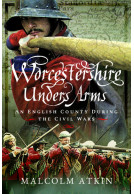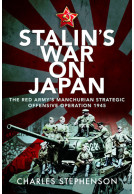To the Last Man (ePub)
The Home Guard in War and Popular Culture
Imprint: Pen & Sword Military
File Size: 6.6 MB (.epub)
Illustrations: 30
ISBN: 9781526745941
Published: 20th June 2019
National Publicity!
As featured by;
- The Daily Telegraph: New book by Malcolm Atkin explodes the myth of the comical Dad's Army of TV fame
| Other formats available - Buy the Hardback and get the eBook for free! | Price |
|---|---|
| To the Last Man Hardback Add to Basket | £25.00 |
The Home Guard was formed in 1940 to fight an uncompromising and essentially suicidal campaign that was to buy a few hours grace for the regular forces to re-group after a German invasion. But the Dad’s Army TV series has led to a serious distortion in the perception of the Home Guard and, as Malcolm Atkin reveals in this thought-provoking and meticulously researched book, its image was manipulated from its earliest days.
Using official documents, contemporary histories, stories, artwork and poetry, and comparing these with post-war films and histories, he takes a unique perspective. He explores how the myths of the Home Guard arose and were exploited by official propaganda and the wartime and post-war media. He also shows how the strong sense of gallows-humour amongst its volunteers – which fits in with a long tradition of self-deprecating humour in the British army – was taken out of context and became the basis of the TV series.
To the Last Man strips back the myths and forensically analyses how the modern perception has evolved. The result is a new, gritty, sometimes shocking, appreciation of the role that the Home Guard was expected to play in the Second World War.
Mr Atkin takes us through the formation and activities of the Home Guard from the corps’ inception in 1940 until when it was deemed superfluous in the second half of 1944. The book also looks at attempts to raise a new organisation during the dark days of the Cold War and how the scheme was mired in politics. The author takes time to consider what impact Dad’s Army and other lesser known depictions have had on our collective memory of the Home Guard. All in all this is a very useful and entertaining read.
War History Online
Read the full review here
Box sets of the TV show ‘Dad’s Army’ are often dug out for family viewing at Christmas. But just how true to life is this show? The Home Guard was formed in 1940 to fight an uncompromising and essentially suicidal campaign that was to buy a few hours’ grace for the regular forces to re-group after a German invasion. Using official documents, contemporary histories, stories, artwork and poetry, and comparing these with post-war films and histories, Atkin explores how the myths of the Home Guard arose and were exploited by official propaganda and the wartime and post-war media. He also shows how the strong sense of gallows-humour amongst its volunteers was taken up to become the basis of the TV series. A gritty appreciation of the role that the Home Guard was expected to play in the Second World War.
Julian Stockwin Blog
See the full review here
But the Home Guard was much more than an army of old people or kids with an armband and a uniform taken from stock funds. In this book we know those aspects that have been left out and it is thanks to Malcolm Atkin. A book to read to find out more about something we perhaps believe we already know everything about.
Old Barbed Wire Blog
Read the full Italian review here
The brilliant television comedy series Dad’s Army inevitably caracatured the volunteers who flocked to the defence of their country. This book goes a long way to painting a clear picture of a group of people who were too young, too old, or too unfit to volunteer to join the regular army, but in no way did they lack the enthusiasm and courage – Most Highly Recommended.
Firetrench
Read the full review here
The Dad's Army TV series is a serious contender for the best-loved comedy series of all time, and behind the humour, the writers showed with uncanny accuracy the dedication of the ordinary men who could not fight, often because of their age, as they prepared to defend their country from the possibility of German invasion. Malcolm Atkin's book goes one step further than Dads' Army, because it concentrates on the actual men who became members of the real Dads' Army, and then it goes on to look at popular culture and how it portrays those same men. A brilliant, entertaining and thoroughly gripping account of real experiences and how they are seen by others. A fantastic read.
Books Monthly
We also served who only stood and waited!
Robert Bartlett, June 2019
Malcolm Atkin has written a number of books about the Civil War and the Home Front during the Second World War. This book brings together a great deal of his meticulous and broad based research particularly into the lesser-known area of the Auxiliary Units, the role of women and their links to the Home Guard.
Dad’s Army has not been good for the memory of the Home Guard though pluckiness and willingness to get stuck in is always present. It is certain that all the characters from the TV show could be found within the huge organisation that by 1941 numbered over 1.5 million members. As comedy writers they have overlooked the professionalism of the organisation, the reality over their arms and equipment and the true nature of the role. Yet without Dad’s Army the Home Guard could easily with the passing of a generation slip from the national memory. Formed in response to the immediate invasion threat Atkin corrects that failing. You cannot but be impressed by an organisation of volunteers whose role if attacked was to hold the advance for just a few minutes, the time gained by multiple interventions and harrying of the enemy to allow the Army to concentrate its forces to fight the invaders. It is not too dramatic to call the role following invasion, a suicide mission. Yet upon formation what the role was to be was unclear and for some it was to be some form of Special Constabulary. How that would have changed policing during the War and possibly thereafter!
The main national training school for the Home Guard was at No 1 Training School, Denbies House just to the north of Dorking in Surrey now the site of a major vineyard. One view was training at Denbies was not to mould regular soldiers but “to develop any flair for improvisation, to encourage individualism, and to produce first-class irregulars or even rural bandits.” It was an extremely tough course to get through!
Much of the research is based on documents at the National Archives telling the story of the men who worked at their jobs during the day and took up arms at night. The pressure of wartime coupled with lack of sleep caused in effect by two distinct jobs. Tiredness must have been the overwhelming sense and memory of this stage of the war. It was not without dangers with 1,206 men killed on duty before the organisation was stood down on the 3 December 1944.
This is an excellent book. Amongst all the explosions is another that can be heard today as the myth of the Home Guard is blown up and destroyed. This must surely become the go-to book for anyone with an interest in the true history of the Home Guard and life on the home front.
New book by Malcolm Atkin explodes the myth of the comical Dad's Army of TV fame.
Daily Telegraph 11/4/19
New book reveals Home Guard was not a group of doddery old men made famous in BBC comedy Dad's Army
Mail Online
About Malcolm Atkin
Malcolm Atkin is a former head of the Historic Environment and Archaeology Service for Worcestershire. After becoming a leading authority on the English Civil War, he has more recently made a special study of home defence and the development of British intelligence during the Second World War. His many publications include Cromwell's Crowning Mercy: The Battle of Worcester, The Civil War in Evesham: A Storm of Fire and Leaden Hail, Worcestershire under Arms, Worcester 1651, Fighting Nazi Occupation: British Resistance 1939-1945, Myth and Reality: The Second World War Auxiliary Units, Section D for Destruction: Forerunner of SOE, To the Last Man: The Home Guard in War and Popular Culture and Pioneers of Irregular Warfare: Secrets of the Military Intelligence Research Department in the Second World War.





















